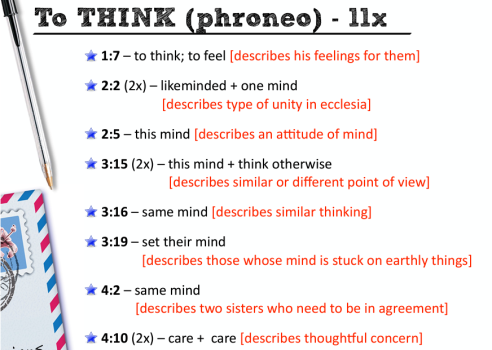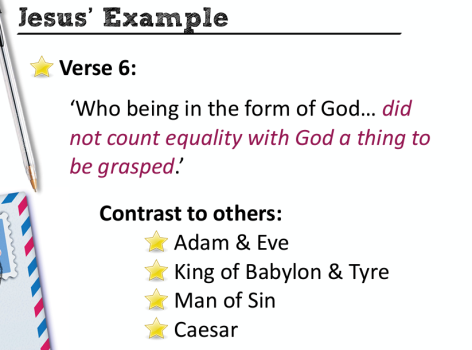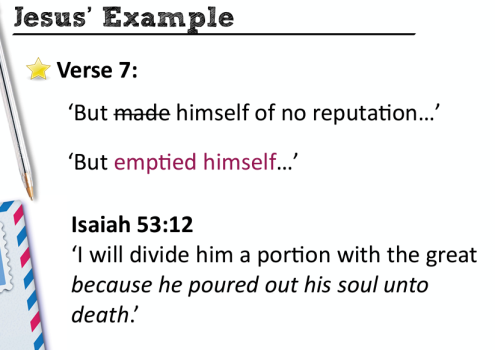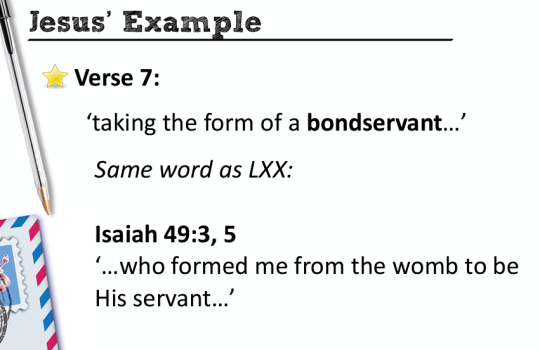David in NJ
Well-Known Member
Amplified BibleAs one so addressed, my reply is to appeal to the obvious translation error of this passage, which I have addressed many times before, but for the sake of new readers I will address it again…
Phil 2:5-10 does not say what is implied by this error in translation…here’s why….
The NASB and the ESV render this passage more correctly….
“Have this attitude in yourselves which was also in Christ Jesus, who, although He existed in the form of God, did not regard equality with God a thing to be grasped, but emptied Himself, taking the form of a bond-servant, and being made in the likeness of men. Being found in appearance as a man, He humbled Himself by becoming obedient to the point of death, even death on a cross. For this reason also, God highly exalted Him, and bestowed on Him the name which is above every name, so that at the name of Jesus every knee will bow, of those who are in heaven and on earth and under the earth, and that every tongue will confess that Jesus Christ is Lord, to the glory of God the Father.”
Please note the glaring anomalies in the interpretation of this well used passage of Scripture..…
1) Jesus existed in God’s ”form”….so, what “form“ does God have? The Bible says that “God is a spirit” (John 4:24) so Jesus existed in spirit form in heaven before being “sent” by his Father in human form to redeem mankind.
2) He did NOT regard “equality with God a thing to be grasped”….the very thought that he could ever achieve equality with his Father was never in his mind or thoughts even though his abilities in performing miracle might make some assume that he was a god….and want to worship him. Jesus plainly told the devil that God alone is to be worshipped. (Luke 4:8)
This happened to Paul when he was bitten by the serpent and did not die (Acts 28:6)..…or on another occasion when Paul and Barnabas healed a man, the people wanted to worship them as gods. (Acts 14:8-14)
3) Being humble as a human servant of his Father, Jesus was “obedient to the point of death”…..so to whom was he obedient?
Is God obedient to his equal self? Can an immortal God die?
4) After successfully completing his mission, Jesus returned to his Father in heaven and was “highly exalted“….can God highly exalt himself? And can he thereafter give himself “a name that is above every name” when God (Yahweh) already has a name above all others as “the Most High over all the earth” (Psalm 83:18)
5) So, “in the name of Jesus every knee will bow” (“kamptō”)…..does this mean worship? Or is bowing an act of respect as it was in Bible times?
6) How does this declaration by Paul finish?
”every tongue will confess that Jesus Christ is Lord, to the glory of God the Father”….
Christ’s whole mission was to glorify his Father…not himself.
And addressing Christ as “Lord” is not calling him “God” but is addressing him with a title of respect, which is what the word “Lord” in Greek, conveys.
“kyrios” also means….
Christ in his capacity as redeemer was a “servant” of his God and Father. He was also the “Master” of his disciples, as their teacher.
- the owner; one who has control of the person, the master
- in the state: the sovereign, prince, chief, the Roman emperor
- is a title of honour expressive of respect and reverence, with which servants greet their master” (Strongs)
So perhaps all in Christendom who read that erroneaou passage in their translations of the Bible, should think again and see what it actually says, rather than what they want it to say….?
who, although He existed in the form and unchanging essence of God [as One with Him, possessing the fullness of all the divine attributes—the entire nature of deity], did not regard equality with God a thing to be grasped or asserted [as if He did not already possess it, or was afraid of losing it];
Christian Standard Bible
who, existing in the form of God, did not consider equality with God as something to be exploited.
Holman Christian Standard Bible
who, existing in the form of God, did not consider equality with God as something to be used for His own advantage.
American Standard Version
who, existing in the form of God, counted not the being on an equality with God a thing to be grasped,
Aramaic Bible in Plain English
He who, while he was in the form of God, did not esteem this as a prize, that he was the equal of God,
Contemporary English Version
Christ was truly God. But he did not try to remain equal with God.






